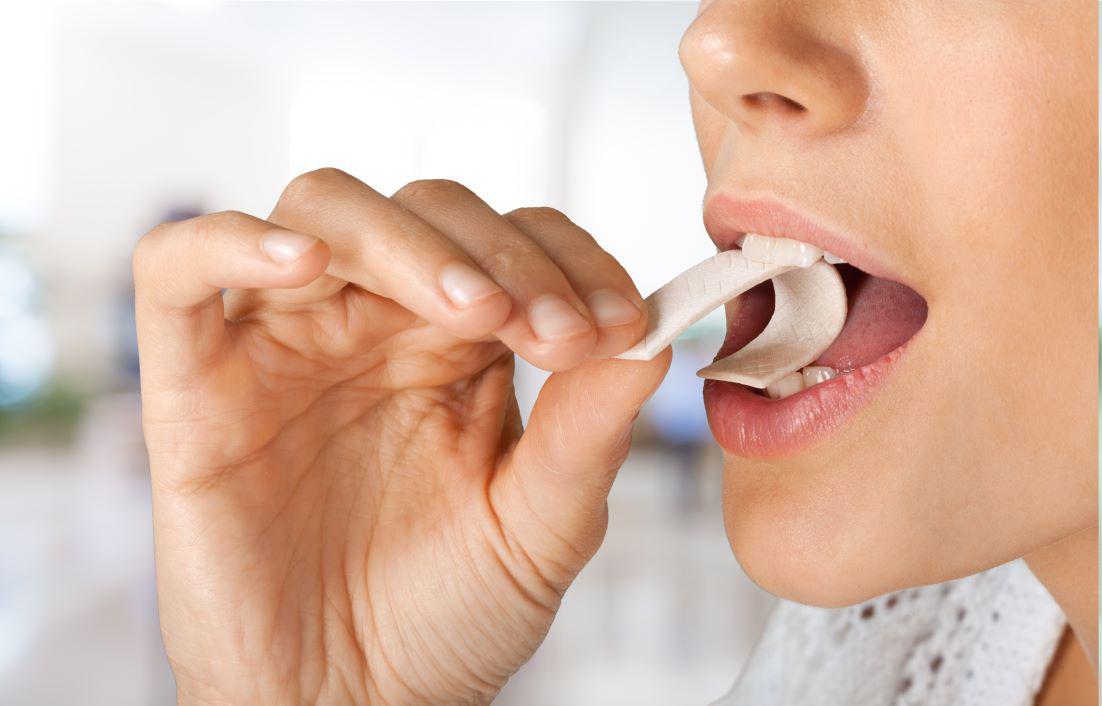 Chewing gum may not have gotten your school teacher's approval, but as long as it's sugar-free, it will get a nod from your dentist! In fact, sugar-free gum is the only item in the candy aisle that can actually improve your oral health.
Chewing gum may not have gotten your school teacher's approval, but as long as it's sugar-free, it will get a nod from your dentist! In fact, sugar-free gum is the only item in the candy aisle that can actually improve your oral health.
Adding sugar-free gum to your day can help:
Increase Saliva Flow
Saliva plays a critical role in your overall oral health. In addition to washing away bacteria, saliva keeps your mouth at the correct pH level. A dry mouth causes an imbalance in the mouth's pH level. This can lead to acidic saliva (when the pH drops below 5.5), which breaks down tooth enamel, creating the ideal environment for cavities. When you chew, muscles compress the salivary glands in the mouth, which release saliva to keep the mouth moist. Increasing saliva production by chewing gum after eating will help keep the mouth clean.
Fight Bad Breath
We've all experienced bad breath on occasion. Strong-smelling foods like garlic, onions, and spices that linger in your mouth can be masked quickly by popping in a piece of minty, sugar-free gum. Aside from the refreshing flavor, chewing gum increases saliva production, which removes odor-causing oral bacteria. It's important to note that frequent bad breath can also be a symptom of more serious oral health conditions like gum disease or dry mouth. If you have persistent bad breath, it's a good idea to schedule a check-up with your dentist.
Whiten Teeth
Many of the most common food and beverages in our diet are highly pigmented and can stain teeth. Some of the worst culprits are chocolate, coffee, tea, cokes, red wine, dark beer, and berries (yes, even though they're healthy). While whitening toothpaste and treatments can dramatically reduce stains, whitening chewing gums are a great on-the-go option. When chewed after meals, whitening gum helps wash away stain-causing food particles by stimulating saliva production. In addition, these chewing gums also coat the teeth to help prevent stains in the first place.
Prevent Tooth Decay
In a study noted in the Journal of Oral Science, participants who chewed gum with the sugar-free sweetener xylitol had fewer oral bacteria in their mouth after chewing. This, combined with the fact that saliva carries nutrients and chemicals like calcium and fluoride that strengthen tooth enamel, reduces the risk of tooth decay. While chewing gum is NOT a substitute for regular brushing and flossing it, can complement a healthy oral hygiene routine.
Contact Our Office
Remember, while chewing sugar-free gum is a great way to clean teeth and freshen breath, chewing gum that contains sugar can actually damage your teeth, so choose wisely! To ask our team any questions about chewing gum or ways to improve your oral hygiene in general, contact our office.


